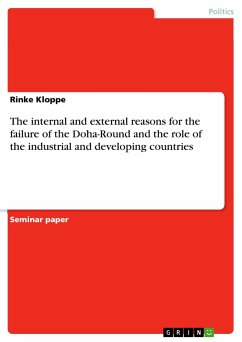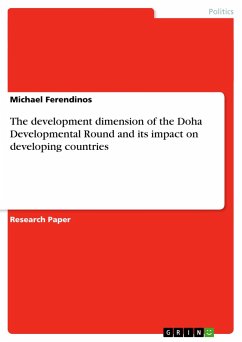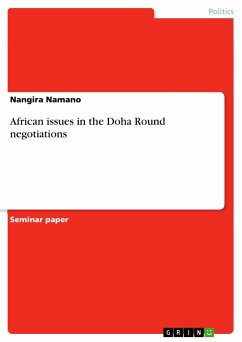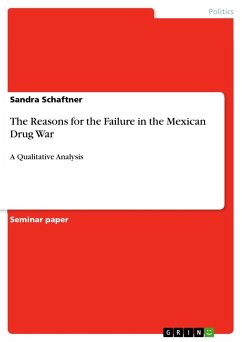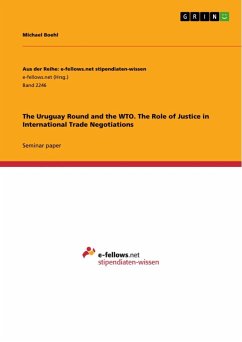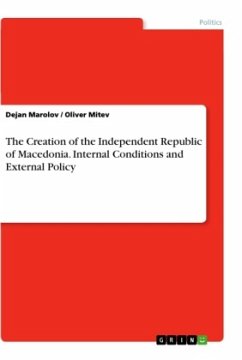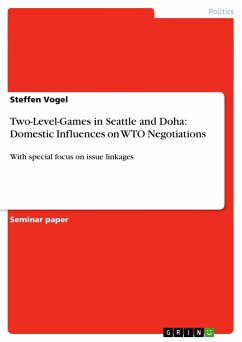Seminar paper from the year 2009 in the subject Politics - International Politics - Topic: European Union, grade: 2,0, Friedrich-Alexander University Erlangen-Nuremberg, course: The external commercial policies of the European Union, language: English, abstract: During the fourth Ministerial Conference of the World Trade Organization in Doha, Qatar, from November 9th to 14th 2001, the new round of multilateral trade talks became known as the Doha Round. Against the background of the terrorist attacks in the USA that had happened two months before in September, a strong message of stability and prosperity to the economical development and the wish for a greater political cohesion were communicated and were seen to become resolved in multilateral trade negotiations. The principle aim of this ministerial-level meeting was to lower trade barriers globally, which allows countries to increase trade worldwide by a more efficient exchange of goods among countries and to establish a morestable and certain foundation for today's dynamic global marketplace in order to avoid a repetition of terrorist attacks.However, the Doha Round failed and even following ministerial conferences and meetings that took place in Cancún, Mexico (2003), Hong Kong (2005), and Geneva, Switzerland (2004, 2006, 2008) did not lead to a satisfying result.In the following chapters, the internal, thus the relationship between developing and industrialized countries with focus on the EU and the leading developing countries Brazil, India and China - which are developing to the leading economic powers in the world at the moment - and external, thus especially the upcoming trend towards bilateralism and regionalism, reasons for the collapse of the multilateral trade round will be discussed. The question is whether the Doha Round, thus multilateral trade talks, still has a chance - coupled with the WTO - in a growing regionalized world and what can be done to find a consensus in the world trade system.The focus of the paper lies on the conditions, the framework and the results of the rounds and the development in perspective, but does not cover the content of the agreements.

